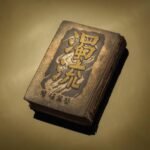Korea Zinc’s smelter in South Korea
Korea Zinc Inc. will unveil a share buyback at a higher price than MBK Partner’s bid to counter the latter’s attempt to secure control of the world’s largest lead and zinc smelter, according to people familiar with the matter on Tuesday.
The plan, to be finalized at a board meeting later on the day, will likely gain support after the Seoul Central District Court rejected MBK Partners’ request to block Korea Zinc from buying back shares in the company during its tender offer period. The lead smelter told the court that it would retire all its shares after the planned repurchase.
Korea Zinc’s board of directors is expected to endorse the share buyback plan at 800,000 won-850,000 won ($605-$643) per share, the sources told The Korea Economic Daily’s capital market news outlet Market Insight.
The bid price slightly exceeds MBK’s offer of 750,000 won. But Korea Zinc’s shares barely moved on Tuesday morning, trading around 692,000 won. It rallied to a record high of 753,000 won on Sept. 20 in response to MBK’s takeover bid announcement.
The buyback plan comes less than a week after a consortium of MBK and Young Poong Corp., Korea Zinc’ controlling company with a 25.4% stake, bumped up its takeover bid to 750,000 won from the initial 660,000 won.
Korea Zinc Vice Chairman Lee Je-jung said in a press conference on Sept. 24 that MBK’s takeover will undermine the company’s competitiveness
MBK and Young Poong Corp., a non-ferous metal company, aim to buy up to 14.6% stake in the latter through a tender offer, estimated to cost up to 2.3 trillion won ($1.7 billion) in the largest takeover bid in South Korean history.
The takeover attempt comes as Korea Zinc is stepping up its efforts to terminate its decades-long business relations with parent Young Poong Group.
YOUNGPOONG PRECISION WITH A CASTING VOTE
Simultaneously, Korea Zinc’s three family members led by Chair Choi Yun-birm plans to spend 118.1 billion won to buy shares in Young Poong Precision Corp. at 30,000 won per share to secure an additional 25% stake, according to the latter’s regulatory filing on Tuesday.
They will be buying back the shares during a period of Oct. 2-Oct. 21, about 20% higher price than the MBK-led consortium’s offer of 25,000 won. The announcement drove its share price to a record high of 28,100 won on Tuesday morning.
Young Poong Precision Chairman Choi Chang-gyu and Korea Zinc honorary Chairman Choi Chang-young formed a three-way consortium with Korea Zinc’s current chairman for a share repurchase with an aim of lifting their combined stake to 60.45%.
Kim Kwang-il, vice chairman of MBK Partners, explained its bid for Korea Zinc in a press conference on Sept. 19 (Courtesy of Yonhap)
Young Poong Precision, an industrial pump and chemical plant valve maker, can give a casting vote with a 1.85% stake in Korea Zinc in the management battle against the MBK-led consortium.
Young Poong Precision is controlled by Korea Zinc Chair Chair Choi Yun-birm, who MBK and Young Poong Group aim to oust.
CONTROVERSY MAY ARISE
Industry observers warned that the buyback attempt for Korea Zinc. could stoke a controversy over breach of trust and market manipulation because it is expected to use the company retained earnings for the buyback at a price above the market price.
In that regard, Korea Zinc Chair Choi could be embroiled into legal disputes even if he wins the battle against the MBK-led consortium.
By Woo-Sub Kim and Ji-Eun Ha
duter@hankyung.com
Yeonhee Kim edited this article














